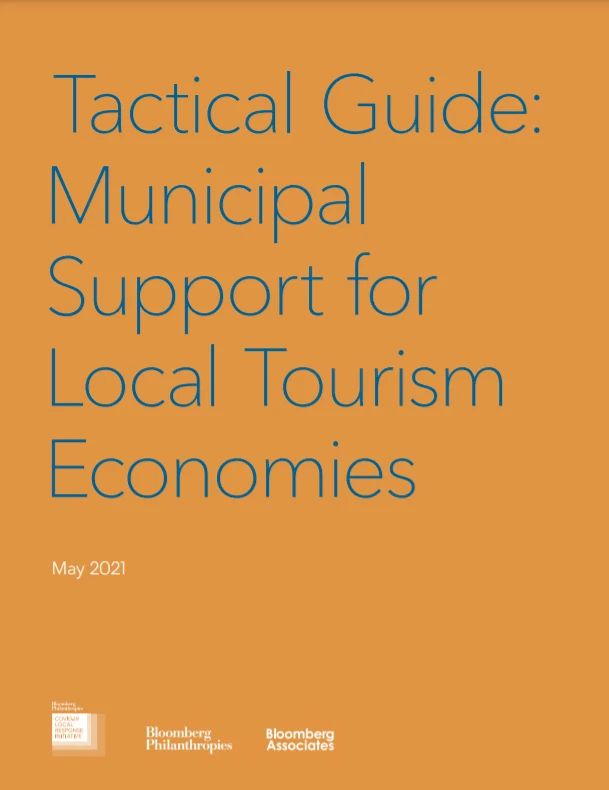COVID-19 Economic Response and Recovery
Consider Additional Sources of Funding and Cost Savings
Action
Support industry coalitions which are building a case for additional aid for tourism businesses, as well as American Rescue Plan Federal replacement revenues for lost hotel tax revenues. (For example, provide access to data/evidence and connections.)
Support local, small businesses — particularly micro, minority-owned and unbanked businesses — to apply for direct aid and technical assistance.
Encourage industry players to pool funding and resources (for example, to purchase PPE or for marketing activities).
Explore opportunities to make cost cutting savings by partnering, delivering through others, and/or merging operations.
Why
In the future, many DMOs will have to manage with smaller budgets, and many local businesses have bled cash during lockdowns. As a result, everyone will need to identify savings, find new ways to collaborate, and pool resources for programming which benefits all.
Background
The pandemic has placed enormous budget pressure on municipal governments, threatening deep and potentially lasting cuts to programming. The U.S. Travel Association and Tourism Economics estimates that the depressed level of travel spending has caused a loss of $64 billion in federal, state, and local tax revenue since March 1 2020.
Many DMOs and convention centers rely on hotel tax revenues for a large share of their operations. From 2020 to 2025, hotel tax revenues in 25 largest US cities are estimated to fall short of 2019 levels by approximately $6.1 billion.
As a result, DMOs and municipal governments may need to refinance debt that is repaid by hotel tax revenues if reserves are insufficient to cover existing debt service obligations. They may also need to temporarily close convention centers, delay convention center expansion projects, and/or reduce DMO operations unless American Rescue Plan funds can be used, alternative revenue sources can be found, or hotel tax revenues recover.
Some cities are implementing temporary measures. For example, McCormick Place Convention Center in Chicago has traditionally accessed taxes from restaurant and hotel sales, car rentals and airport departures, as well as the State of Illinois’ sales tax. When sales taxes dropped in 2020, the Center tapped into a reserve fund to help pay back its debt. In 2021, it plans to refinance its debt to replenish the fund.
Guidance
Bloomberg Associates has created a tactical guide on new sources of operating funding for economic development programming, some of which may be relevant for programming to support your tourism economy.
Cities may also want to look at alternative DMO funding models, which do not rely on hotel or sales tax.
For example, Julie Heart from CFO by Design has suggested a shared-services model between local convention bureaus, Chambers of Commerce and economic development councils.
Under this model, the convention bureau would develop branding and creative services for the city, the Chamber would educate local businesses on the value that tourism and meetings bring to the destination, and the economic development council would work with the convention bureau to attract industry, businesses and talent to the city.
Other cities, such as London (UK) have gone further, merging their agencies to better promote the city with one voice while achieving significant cost savings. In 2011, London merged its tourism and convention bureau with its business attraction, international student attention, and small business support programs, generating more than £2m initial savings.
A similar model was followed in Topeka, Kansas. The Greater Topeka Partnership combined the economic development agency, Chamber of Commerce, BID and tourism agency, which combined office space and eliminated redundancies (such as multiple contracts with the same vendor). The organizations also coordinated their plans and activities to create jobs and attract visitors.
We are also seeing more partnership working between local and state/national DMOs. For example, Destination Canada and Destination BC announced a partnership last year to help local DMOs market domestically.
